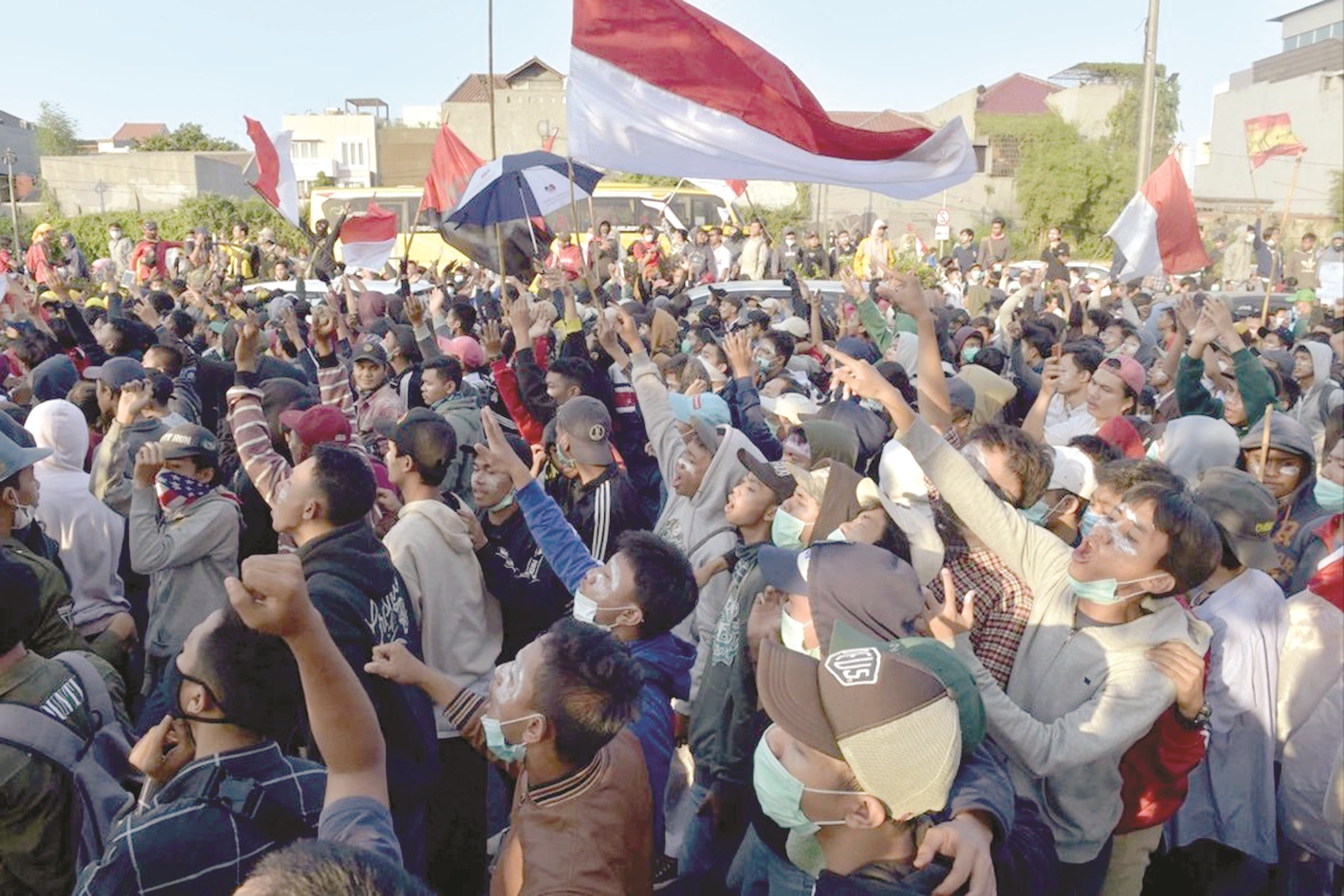Row deepens over Indo criminal code
Published on: Tuesday, June 28, 2022
By: SCMP
 A previous protest by Indonesian students against the raft of divisive legal reforms in Jakarta in September of 2019. (AFP)
A previous protest by Indonesian students against the raft of divisive legal reforms in Jakarta in September of 2019. (AFP)
JAKARTA: A row that erupted ahead of the passage of Indonesia’s controversial new criminal code has continued to deepen after talks between an alliance of legal and civil liberties groups and the government to discuss the legislation broke down.The Indonesian Ministry of Law and Human Rights invited the National Alliance for Criminal Code Reform to discuss issues related to the draft of the new code in Jakarta on June 23.
ADVERTISEMENT
But the Alliance rejected the premise of the discussion, saying it did not amount to “meaningful participation” from the public.
“While the Alliance welcomed the invitation from the government to discuss the draft criminal code, this discussion did not amount to meaningful participation because it should have been done during a parliamentary session with the draft transparently published,” said Citra Referandum Simamora from Jakarta’s Legal Aid Institute, an Alliance member.
Indonesia’s current criminal code dates back to 1918, drafted during the Dutch colonial period. It was codified and expanded across Indonesia in 1946 following independence in 1945.
The government has not yet released the latest draft of the code to the public, following widespread protests in late 2019 when students and others clashed with police over that year’s version.
ADVERTISEMENT
It was found to contain a number of controversial articles that could affect minorities and be used to clamp down on civil liberties.
It is thought the latest updated draft code could be signed into force in July.
ADVERTISEMENT
It includes bans on sex before marriage and cohabitation, something which civil society groups say amount to “moral policing” and could be used to criminalise members of the LGBT community — same-sex marriage remains illegal in Indonesia.
Initially, hopes were high for the new code, supposed to be a comprehensive overhaul of existing criminal laws, some of which are out of date, overlapping and contradictory.
Following complaints that the latest draft had not been released publicly, the government released 14 updated “crucial articles” (out of hundreds of articles) that were recently discussed in parliament in an effort to placate citizens.
However, Simamora said the Alliance was not satisfied by the government limiting public discussion to just 14 articles and it needed to be transparent about all of the new code, including any controversial passages.
“These include the criminalisation of freedom of expression and opinion, contempt for public power and state institutions, holding demonstrations and demonstrating without a permit,” she said.
Others said they welcomed efforts by Indonesian lawmakers to move on from colonial era laws and draft a new code more in line with “Indonesian values”.
“This law was never our law, but a colonial legacy,” said Berlian Simarmata, a lecturer in criminal law at Santo Thomas Catholic University in North Sumatra’s city of Medan.
He added that some parts of the code released in 2019 also reflected a more humanitarian approach to legal matters, with some provisions stipulating that “fines should be offered in place of custodial sentences in many instances”.
However, Usman Hamid, the head of Amnesty Indonesia, said democracy, the rule of law, and human rights “will certainly be in real political danger” as a result of the new code.
“In short, the draft criminal code is one of the most dangerous laws that will put democracy at risk,” he said.
He said one of the most dangerous articles is the death penalty, which will apparently not be abolished despite an Amnesty campaign since the 1960s.
There are also fears women’s rights could be disproportionately affected.
Among the 14 published articles in the new draft code are a continued ban on abortion except in medical emergencies or if the pregnancy is a result of rape but has not yet exceeded the 12-week mark.
According to Amnesty’s Hamid, other sections of the code could also affect minorities, such as articles that refer to blasphemy and criticism of the government, but which are opaque and elastic.
Stay up-to-date by following Daily Express’s Telegram channel.
Daily Express Malaysia










